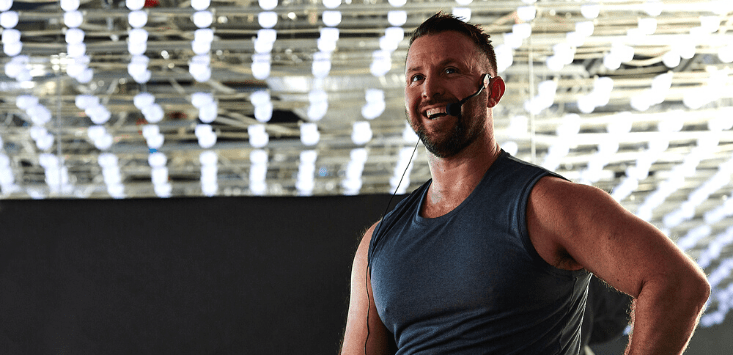
The COVID-19 pandemic has rocked small businesses this year, but SME owners like Ben Lucas have taken it as a chance to target a global market while remaining local. Lucas is the director and co-founder of Flow Athletic, a Sydney-based fitness studio which he co-founded with yoga instructor Kate Kendall in 2013.
Before the pandemic, Flow Athletic would offer a range of group fitness classes and personal training for its local members — anything from yoga, to indoor cycling and strength training.
Then, everything changed. With lockdown restrictions imposed across the state, Flow Athletic had to close its gyms indefinitely. Faced with an uncertain future, Flow Athletic needed to pivot its offerings, and fast.
“We shut our physical business, a gym with group classes and personal training and reopened with an online business the next day,” Lucas tells SmartCompany.
Lucas turned to Facebook’s organic tools to pivot his offerings online and keep providing services for his loyal members. In doing so, Flow Athletic discovered an unexpected win: they were now reaching a global audience.
“Don’t overthink it”: The key to moving online
In less than a week, Flow Athletic had shifted its lessons online, with 65 live-streamed classes hosted every week in a Facebook Group created for its members. Personal training sessions also continued through Facebook Messenger.
While the shift online was smooth from a technical perspective, the mental transition from in-person teaching to online interactions wasn’t always as easy.
“My greatest challenge initially was going from teaching a class in front of 40 smiling faces, to teaching while staring down a phone and executing the same world-class experience,” Lucas says.
“This improved with practice and visualising the people doing the class on the other end [of the camera].”

Lucas and the Flow Athletic team host 65 live-streamed classes on Facebook every week.
Most importantly, Lucas could connect with the Flow Athletic community and support his members using organic tools like Facebook, Instagram and WhatsApp.
Lucas is just one of many SME owners that are radically changing their business models to adapt to the new COVID-normal and take on global markets.
“What has really stood out to me is the resilience of small businesses and their ability to adapt to the changing circumstances,” Melinda Petrunoff, Director of Small and Medium Business ANZ, Facebook, tells SmartCompany.
“In the case of Flow Athletic, they’ve shown us how beneficial it can be to embrace free tools on Facebook to try something new. It kept them operating and all their staff employed during the lockdown period.”
For small businesses looking to make the shift online, Lucas has three pieces of simple advice:
“Don’t overthink it. Trial and error. Learn on the fly”
Support local, think global
The impact of this shift online was monumental for Flow Athletic.
No longer limited by brick and mortar premises, the gym could reach a global audience. It wasn’t long before Flow Athletic experienced 400% growth in its membership.
Facebook’s suite of organic tools allowed the business to reach new customers all over the world, including Hong Kong, London, Singapore and New York.
“We were able to go live to hundreds of people every day across the world,” Lucas explains.
As a result, Flow Athletic was able to maintain 65% of its revenue during lockdown and keep all 30 staff employed at their full wages.
Going forward, Lucas has his sights set on growth.
Flow Athletic intends to hire two more trainers to keep up with the increase in demand, and maintain its online presence, which its community has signalled they would like to continue even as studios reopen.
“We’re looking forward to welcoming back our members into the physical studio when restrictions ease, and pushing our online business into the corporate market globally,” Lucas says.
Petrunoff says Facebook has seen a wave of SMEs reaching a global audience through the platform.
“One thing small businesses have realised this year is that ‘community’ can also mean a global community.
That’s one of the benefits of a platform like Facebook that has two and a half billion users around the world. Small businesses can find new customers in places they never thought was possible.”
NOW READ: “They’re not looking to go back”: Why SMBs are embracing digital to evolve
NOW READ: How Indigenous culinary brand Warndu leveraged Facebook to build a dedicated customer audience
Founded in 2004, Facebook's mission is to give people the power to build community and bring the world closer together. People use Facebook's apps and technologies to connect with friends and family, find communities and grow businesses.


COMMENTS
Reader comments have been turned off on this post.